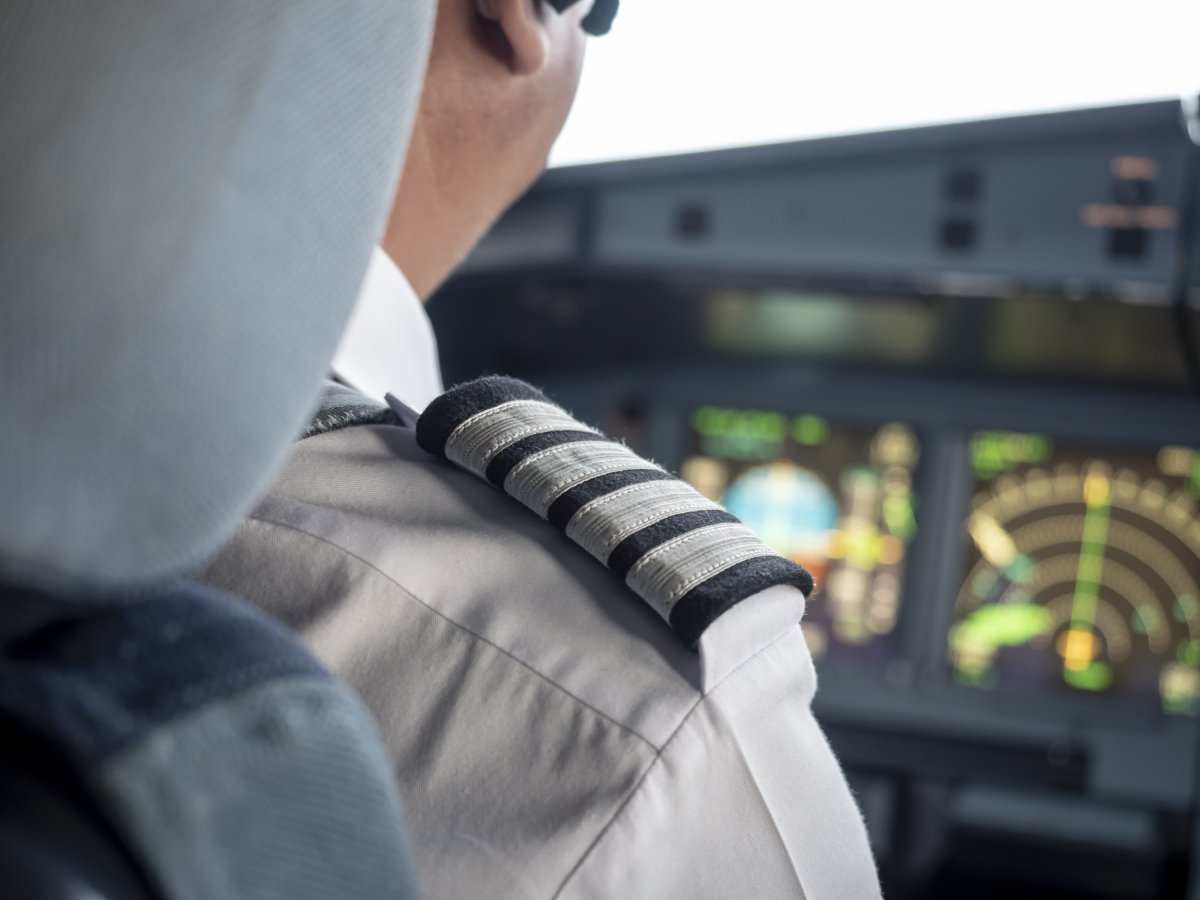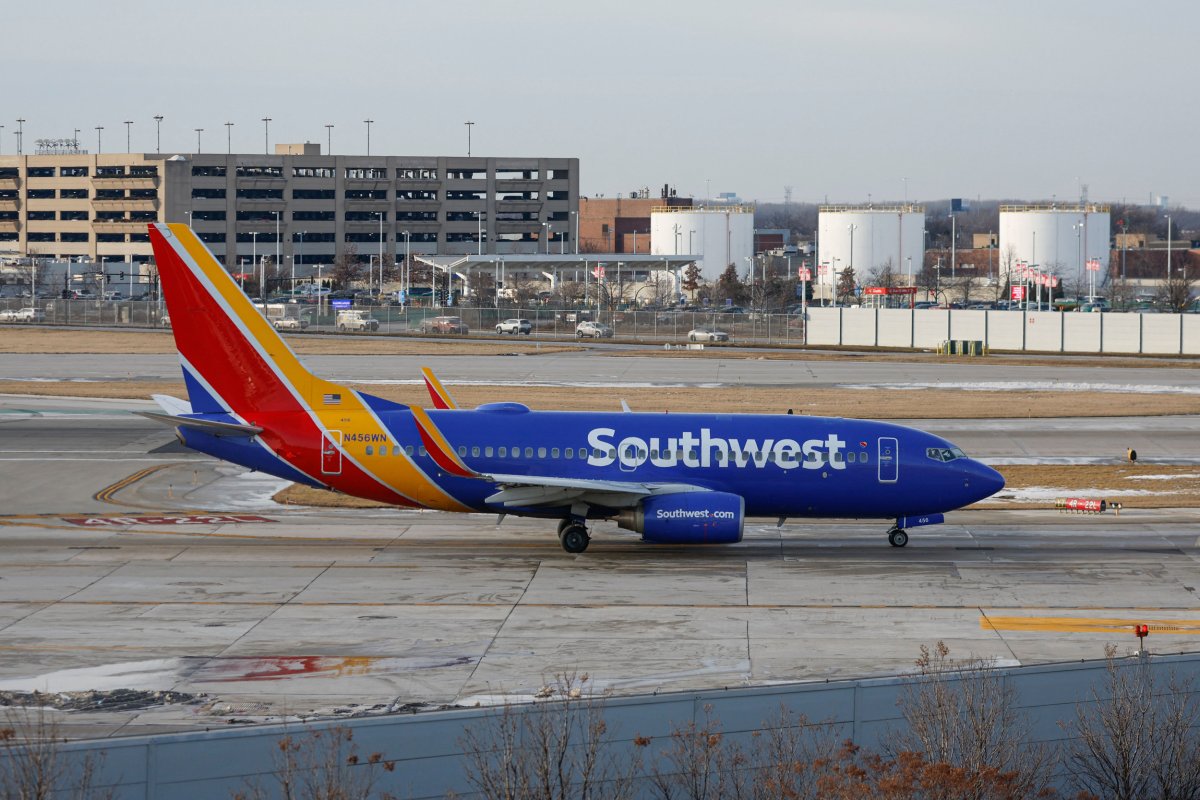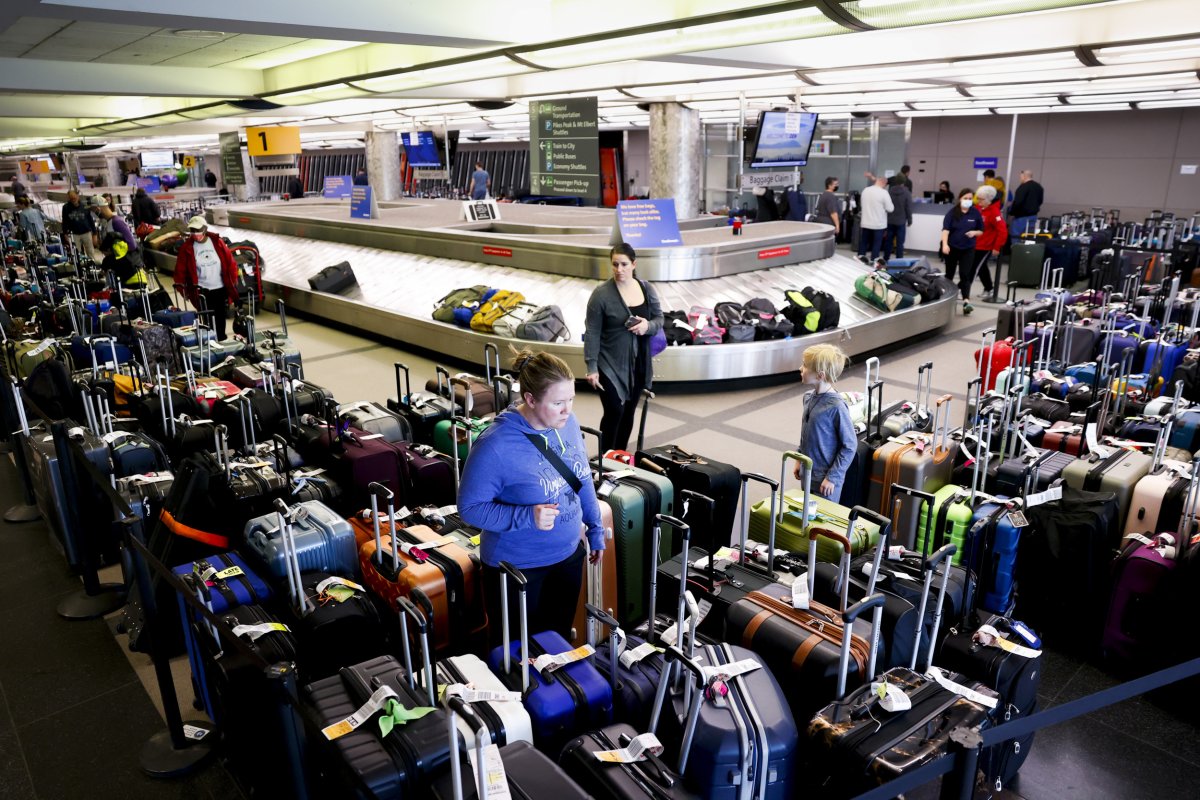As anticipation was brewing for the arrival of Christmas this past December, millions of people packed their suitcases (more on that later) and were eagerly awaiting their travel plans on Southwest Airlines. Tickets were booked for holiday gatherings, weddings, celebrations of life, college breaks, reunions, vacations, and many other personal reasons. As often happens during wintertime in North America (more on that later too) something else was brewing: a snowstorm that came to be known as Elliot.
The account that follows is written through my lens: a professional pilot with 25 years of flying experience, 17 at Southwest Airlines. My experiences as a pilot include the massive shock and uncertainty after the tragic events of September 11, 2001 and, recently, the effects of COVID lockdowns and mandates.
While those two events carry their own significance to many of us, they could be largely considered totally unforeseen, whereas cold temperatures and snowy airport conditions are a little more... predictable. I was scheduled to fly in the days leading up to Christmas Day and again the following week. What I witnessed, while both in the airport terminals and on the aircraft themselves, was utter chaos: exhaustion, sadness, anger, exasperation, and eventual resignation.
In November 2022, the president of our union Southwest Airlines Pilots' Association (SWAPA) declared that Southwest Airlines was "one thunderstorm, one ATC event, one router blowout away from a complete meltdown." The outdated pilot scheduling system was an obvious flaw to pilots, and SWAPA has brought concerns about the lack of scheduling automation to the company's attention for years.

In the days leading up to Christmas weekend, a snowstorm with frigidly cold air was approaching the West and Midwest, with cities like Denver bracing for huge temperature drops. Now, preparing for and reacting to a winter storm is a normal seasonal occurrence for me. After all, winter weather comes every year. There are certain procedures involved in operating an aircraft under such conditions. I must consider managing adequate fuel reserves, possible alternate landing sites, take off and landing performance capabilities, air traffic control complexities, and effectiveness of de-icing fluids all while minding customer needs as well as my own (highly regulated) flight crew duty limits.
As a Southwest Airlines pilot, I have the additional complication of balancing such considerations over 120 unique airports: I don't worry about snowstorms when taking off in Miami, but when my flight is dispatched up to Chicago under blustery conditions, all of the aforementioned factors must be considered.
Now, allow me to explain the significance of flight delays on pilots: when a major airport, like Denver, begins to slow its operation down due to weather, flights that are dispatched (scheduled to fly) into that airport are often ground-stopped (delayed) at their point of origin.
Airplanes that are already en-route are either placed into airborne holding patterns, which starts depleting important fuel reserves, or sent to one of the pre-planned alternate airports. Since pilots have a basic maximum of 8 hours of block time (either flying time or on the ground waiting to depart) for a solo-pilot flight, a multi-hour delay can easily prohibit a pilot from completing a given flight.
If your five hour flight from Philadelphia to Denver pushes off the gate and begins to taxi towards the runway only to be ground-stopped due to deteriorating conditions, a mere three hour delay would lead to it becoming illegal for that pilot to operate that flight. A fresh crew with more remaining duty hours in their day must then be found.
In addition to actual flying limits, there are duty day limits, which include the time spent from getting to the airport to sleeping in a hotel. These limits are regulated, imposed, and monitored for everyone's safety. I mean, would you want the pilots landing your plane under adverse conditions after sitting in an airport on duty for 18 hours? I wouldn't. While each pilot has the ability to declare themselves officially "fatigued" and to be released from further duty, when facing a busy day with hundreds of passengers wanting to get to their destination, pilots are "mission driven" to get people where they want to go. After all, we get paid to fly, not sit around.
Less than six weeks after SWAPA's president highlighted Southwest's challenges, "the meltdown" began. Flights were either significantly delayed or outright canceled by the thousands.
In many cases, these cancellations happened days in advance—pilot schedules became completely unreliable. With close to 10,000 pilots in the system, and no immediate guidance or reroute assignments, pilots were forced to basically sit around and remain on duty while awaiting further instructions.

The crew scheduling department—by that I mean the egregiously outdated software that tracks the pilots and flight attendants—was overburdened. I could not update my schedule, find new flight assignments, or receive layover hotel information using our electronic flight crew portal. Instead, I had to dial into a switchboard to be connected to one of the schedulers on duty. How do you think a fairly small phone bank handles thousands of phone calls? Well, I can tell you that it doesn't.
The system lost control of information. The flight crew tracking software no longer knew in which city pilots or flight attendants were located. The schedulers had to build a database by hand after making pen and ink entries from individual phone calls. They did not know if the crews were within their legal duty day limits. They did not know where certain aircraft were located. The decades-old software has trouble tracking an aircraft and crew if it doesn't fly as scheduled from "City A" to "City B." In other words, no one had "the big picture."
When airport PA systems announced flights were canceled because there were no pilots assigned, myself and other pilots I know tried to call in to offer to fly. When our duty day limits were reached, we tried to call in to get a hotel room booked for ourselves and our crews. When we were left stranded far away from our home cities, we tried to call in to notify the schedulers that we were renting a car or flying on another airline in order to get home. In most cases, we couldn't even get through on the phone and were left waiting on hold for hours until we were forced to give up.
Something else I witnessed during the chaos: suitcases. And lots of them. As passengers found out that their flights were canceled, and that their next flight was also canceled, they were not allowed to reclaim their checked luggage. After thousands of canceled flights and millions of passengers making alternate travel plans, or getting stuck along the way, every airport I passed through had baggage claim areas overflowing with passenger luggage.
The situation snowballed (pun intended) out of control so quickly, it is no wonder the best "solution" was to simply continue to cancel thousands of flights over the next several days. This appeared to be Southwest management's metaphorical attempt to "turn it off, then back on again" in order to let the system reboot and start over.
After millions of customers and thousands of crew members gave up trying to get to their intended destinations, eventually, once fresh crews were assigned aircraft were ferried empty back to maintenance locations, flights could resume operating on the published schedule.
As a pilot, I experienced an inability to solve problems at the lowest level. When stranded due to cancellations at an outstation (a city other than my home airport) I couldn't deadhead myself (ride in a cabin seat as a passenger) on a non-stop flight that wasn't canceled, in order to get back home.
Instead, the scheduling software "solution" determined the best course of action was for me to double deadhead and connect through an intermediate city. Guess what? That first flight brought me to another city and then my connecting flight was canceled. So now I was further out of position, and further from home. Imagine thousands of pilots experiencing similar issues: we couldn't help solve the meltdown, so it just kept getting worse.

As the meltdown continued into Christmas, the situation inside the airports worsened. Many stranded passengers and crew members filled the Southwest Airlines terminals day and night. I could see the heartbreak on so many faces. Both from the flight deck and in the crowded terminals, I uttered the words, "Folks, I'm sorry" hundreds of times. Every frontline employee did, all week long. Whether it was apologizing to customers about their lost luggage, multiple delays, cancellations, or empathizing with their ruined holiday plans, saying "I'm sorry" over and over seemed woefully inadequate.
Perhaps I have the wrong perspective and I should not concern myself with issues if they are above my paygrade. But one of the main reasons I chose to become a Southwest pilot was because of the value that was placed on the employees. Pilots especially, but employees at all positions, were empowered to solve problems and make decisions at their level. If nothing else, this past week has made it clear to all of us that local decision making is no longer tolerated. If a solution to a problem does not originate from Dallas, where Southwest headquarters are located, then it appears to me that it is not considered.
What is maddening and sad is that Southwest Airlines was built on the principle of putting the "employees first." This idea, of course, came from Herb Kelleher who knew that a valued employee would offer an extraordinary customer experience, and that ultimately, the company and its shareholders would profit as a result.
But honestly, after around $12 billion returned to shareholders in share repurchases and dividends in the decade up to 2020, and various promotions leading to many managers that I struggle to see generating positive effects—it is easy to tell what the company truly values. Devaluing employees is a slippery slope: it is very easy to prioritize ladder-climbing over workplace, and worker, value.
Most infuriating before, and in the wake of the massive meltdown of Southwest's operation, is the lack of accountability and demands expressed by some management.
In late November, Southwest's Chief Operating Officer Andrew Watterson described Southwest's scheduling system as "the best in the world," and in a leaked memo from December 21, senior management said that employees must provide a sick note if they cannot work or they would be terminated, as well as having to work mandatory overtime with refusal to do so also leading to termination. These kind of actions and comments have left many of us with no confidence in our bosses. SWAPA has researched and developed solutions and best practice schedule efficiencies that would fix many issues within a broken point-to-point network, but as far as we can see, they have thus far gone unheard.
The "Southwest Airlines Christmas Meltdown" of 2022 is only more demoralizing to the pilots who have been flying aircraft week after week under the backdrop of protracted and contentious contract negotiations. We, as professional pilots, must continually compartmentalize our frustrations and disenfranchisement in order to do our jobs, regardless of flight delays, cancellations, or snow storms.
Of course, flying multiple variants of the Boeing 737 in and out of 120 airports, under vastly dynamic conditions, with your grandma or child on board, is what we do. And continue to do it, we will.
The author has been a pilot with Southwest Airlines for 17 years. Newsweek has verified the author's identity.
All views expressed in this article are the author's own.
Uncommon Knowledge
Newsweek is committed to challenging conventional wisdom and finding connections in the search for common ground.
Newsweek is committed to challenging conventional wisdom and finding connections in the search for common ground.
About the writer
To read how Newsweek uses AI as a newsroom tool, Click here.








